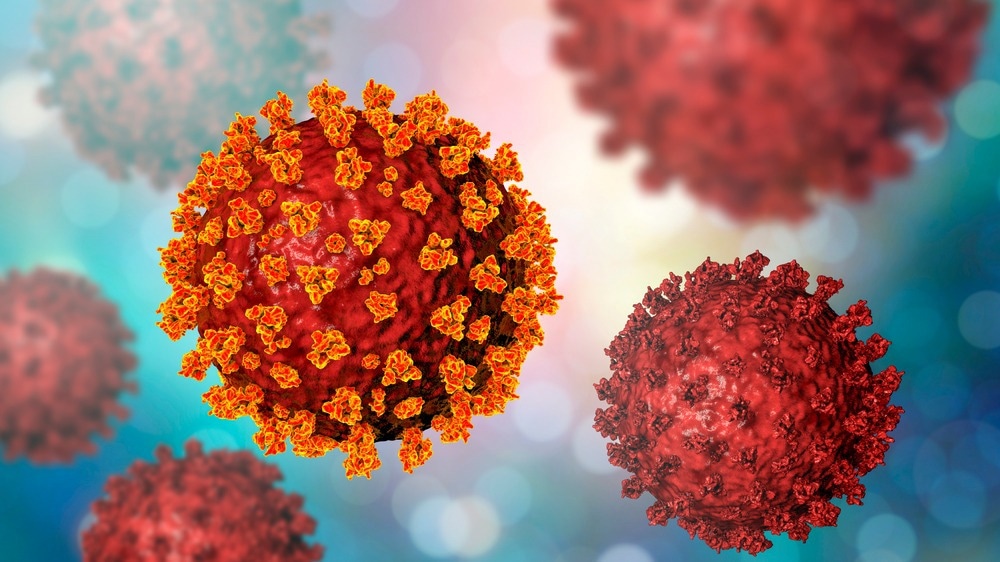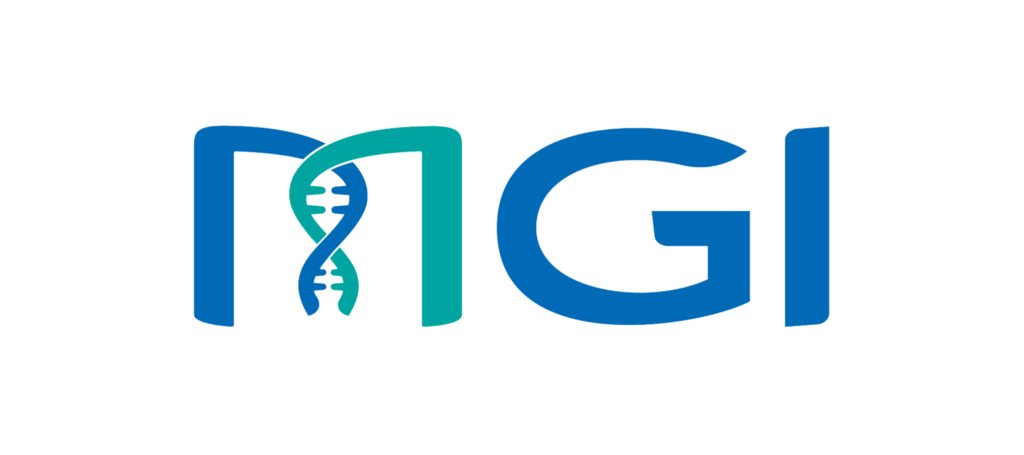Sponsored Content by MGIReviewed by Olivia FrostMay 4 2023
In this interview, Davide Cacchiarelli, Molecular Biology and Genomics Professor at the University of Naples talks to NewsMed about how the COVID pandemic has highlighted the vital role of genomic surveillance and improved genomics.
Please introduce yourself and what inspired your career in molecular biology and genomics?
My name is Davide Cacchiarelli, and I am a molecular biology and genomics professor at the University of Naples. I was inspired by the fact that genomics is classed as an effective tool to improve human health, dissect the molecular events happening in the cell and nucleus, and better understand how cells and organisms work.

Image Credit: ShutterStock/pinkeyes
In The Telethon Institute of Genetics and Medicine, you combine various disciplines with cell biology, molecular biology, and genomics. Why is having a multidisciplinary approach useful when making discoveries, particularly surrounding infectious diseases such as COVID?
The majority of the time, a single omic, measuring only gene expression by RNA sequencing, measuring only epigenetics, or measuring only phenotype, is insufficient to understand how a cell works.
The best solution is to combine all efforts to understand how these events happen, from the nucleus to the cell’s exterior. COVID, in particular, has been a case where acquiring one single omic or a single view of how the system works is ineffective in understanding how COVID behaviors occur in the population or clinically hospitalized patients.
We, therefore, try to combine the general information and patient outcome to get the best result regarding COVID infection.
Davide Cacciarelli at ICG17 - How the COVID pandemic has improved genomics
On what research areas are you and your team at TIGEM currently focusing?
Our group aims to answer various questions, from basic microbiology to developmental biology. Then we can re-engineer it for real regenerative medicine purposes. We also look at how we can effectively use genomics as a medical instrument that can be used to impact the healthcare of patients in our healthcare system.
You have recently co-authored a paper, “Improved SARS-CoV-2 sequencing surveillance allows the identification of new variants and signatures in infected patients.” Can you expand on that?
One of the significant issues in Italy regarding SARS-CoV-2 genome sequencing was the cost. Sequencing the COVID genome was also a tedious and elaborate procedure.

Image Credit: ShutterStock/Kateryna Kon
The main objective was first to make this approach economically affordable and create a proof of printing pulled by which this approach could become a cost-effective method for anyone and any country.
Our second approach, therefore, included integrating the genome information and the transcriptomic profiling of the patient airway epithelia. This helps us to understand how the genome evolves and allows us to track its evolution, in addition to seeing the response of the host respiratory epithelium. Finally, we implemented new ways to classify viral variants based on different characteristics using this approach.
What are the advantages of better identifying new cells, or two variants, for healthcare centers and patients?
The European Center for Disease Control has issued several requirements for next year focused on tracking respiratory viruses. One of these is tracking emerging variants as soon as possible, which we have done with COVID-19. We now know that new, specific variants can emerge in a short timeframe, so immediate tracking is crucial to help contain or at least delay the spreading of possible pathogenic variants.
MGI offers a variety of tools and technology surrounding genomics. Can you tell us more about some of the products used during your research and your experience with them?
At MGI, we have typically applied the COVID and whole genome solutions. We also have the freedom to test the stereo-seq they have in production this month. MGI can offer alternative solutions for various genome sequencing needs.

Image Credit: ShutterStock/peterschreiber.media
At present many sequencing genomic companies are coming up with different solutions. At MGI, we understand that the best genomic solution is the one that better fits your needs. With our experience, for example, with COVID, MGI had the right solution at the right moment.
How important is selecting the right sequencing technology for your research? When undertaking new research, what do you look for in a product/sequencer?
When the primary focus is not on identifying genes or mapping gene expression but on identifying or qualifying gene variants, there must be no issues in the sequencing, as the sequencing issue might be an error in the sequencing and misinterpreted data.
The error rate of MGI technology on DNB sequencing is extremely low, which offers significant benefits. Users can confidently rely on the data at the level of leaders in the field, which is what we look for when we start COVID genome sequencing.
You have often collaborated with other researchers throughout your research projects, especially concerning COVID. How vital have these collaborations been in accelerating your research?
Like many scientists who faced the COVID pandemic, I had much to learn. We used our knowledge in medical genetics and variant interpretation, and the crosstalk we had with virologists, MGI scientists, and genomic specialists was a step towards acquiring the best solution and the best effort to try to get those results as soon as possible, which is crucial for COVID sequencing.
Surprisingly, some scientists who had no interest in healthcare possessed knowledge valuable in tackling COVID issues. The circumstances and contingencies around the event forced them to think outside the box.
Do you believe that if we can understand SARS-CoV-2 better, we could better use this knowledge to prepare ourselves for future pandemics better? What advantages would this have for global health?
COVID did not give us any significant advantages for healthcare, but it may have for science. It highlighted how vital advanced genomics is to track diseases which influenced decisions at the governmental level.

Image Credit: ShutterStock/CKA
Today, several diseases require advanced genome sequencing, such as cancer diagnostics and medical genetics. Given that the issues with this problem affect a small population, you do not feel the urgency to improve specific knowledge or tests.
Therefore, the COVID pandemic has highlighted the vital role of genomic surveillance and improved genomics. Today, we have laboratories that, until two years ago, thought they could never afford to set up a genomic workflow; the pandemic forced them to enter the genomics field. Our mission as genomic scientists is to help them implement this solution in their lab because improving genomics in any lab is the best for healthcare in the future.
There is a saying, “omics for all.” As a scientist, what does that mean to you?
‘Omics for all’ has to be understood in two ways. It is critical to give everybody the chance to have access to omics. However, we need to remember that it is still a medical procedure. Thus, the omics flow offers everybody access to high-quality omics profiling of their genome, but under medical supervision.
Finally, what is the future for you in your research?
I will continue my basic research in my lab: studying how pluripotent cells and stem cells can be manipulated and organized for medical purposes. We also want to use the knowledge accumulated in the COVID pandemic to apply fast, cost-effective, and reliable genome sequencing to other types of screening.

Image Credit: ShutterStock/Anusorn Nakdee
With this in mind, we hope to screen for several hereditary cancers, for example, breast cancer inheritance. Therefore, we can effectively use the COVID strategies we set up for COVID sequencing as proof of principle to apply the sequencing to human and human disease-driving genes.
About MGI
MGI Tech Co., Ltd. (referred to as MGI) is committed to building core tools and technology to lead life science through intelligent innovation. MGI focuses on R&D, production, and sales of DNA sequencing instruments, reagents, and related products to support life science research, agriculture, precision medicine, and healthcare. MGI is a leading producer of clinical high-throughput gene sequencers, and its multi-omics platforms include genetic sequencing, mass spectrometry, medical imaging, and laboratory automation.
Founded in 2016, MGI has more than 1000 employees, nearly half of whom are R&D personnel. MGI operates in 39 countries and regions and has established multiple research and production bases around the world. Providing real-time, comprehensive, life-long solutions, its vision is to enable effective and affordable healthcare solutions for all.